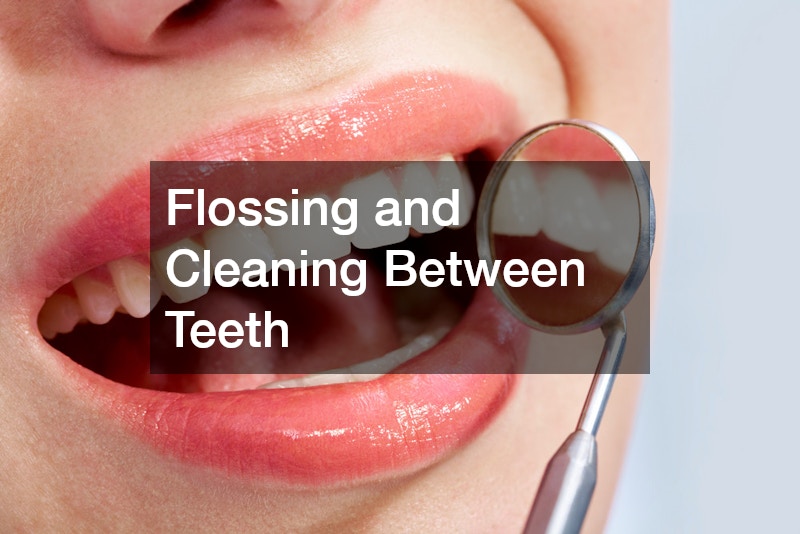Understanding dental practices is vital for maintaining good oral health and addressing issues before they become major concerns. Whether you visit your dentist for a routine check-up or a specific procedure, knowing what to expect can help ease any anxiety and allow you to make informed decisions about your dental care. By becoming familiar with standard practices in Australian dental clinics, you’ll be better equipped to manage your oral health and receive the right treatments when necessary.
What Are the Most Common Dental Procedures?
Routine Dental Check-ups and Cleans
Regular dental check-ups are essential for spotting oral health problems early—before they develop into something more serious. During a standard visit, your dentist will assess your teeth, gums and overall oral cavity, looking for signs of decay, gum disease or other issues.
They may also take X-rays for a more detailed examination, depending on your individual needs. A professional clean is typically part of the check-up, helping to remove plaque and tartar that everyday brushing and flossing can’t reach.
In many Australian clinics, dental hygienists carry out these cleans using specialised tools to remove build-up and surface stains. These sessions are not only important for keeping your mouth healthy but also provide a chance for your dental team to advise you on improving your oral hygiene habits. Attending check-ups every six months—or as recommended by your dentist—helps reinforce good routines and keeps minor issues from becoming major headaches.
Fillings and Tooth Extractions
Cavities are among the most common dental issues faced by Australians. They occur when tooth enamel is worn down by acids produced by bacteria in plaque. If caught early, cavities are treated with fillings, where the decayed part of the tooth is removed and replaced with materials such as composite resin, amalgam or even porcelain. The aim is to restore the tooth’s shape and function while preventing further damage.
Tooth extractions, on the other hand, are usually a last resort—performed when a tooth is badly damaged, decayed or impacted. Wisdom teeth, in particular, are often removed to prevent crowding or infection. Extractions are typically straightforward procedures, performed under local anaesthetic or sedation to ensure patient comfort. Your dentist will also provide aftercare instructions to support a smooth recovery.
How Can I Improve My Oral Hygiene Routine?
Brushing Techniques
Proper brushing is the cornerstone of any good oral hygiene routine. Australian dentists recommend brushing at least twice a day using a soft-bristled toothbrush and a fluoride toothpaste. The correct method involves holding the toothbrush at a 45-degree angle to your gums and using gentle, circular motions to clean all surfaces of your teeth—including the outer, inner and chewing surfaces.
Choosing the right toothbrush can also make a difference. Electric toothbrushes are increasingly popular across Australia due to their ability to clean thoroughly with less effort—ideal for kids, the elderly or anyone with limited mobility. Make sure to replace your toothbrush or brush head every three to four months, or sooner if the bristles become frayed.
Flossing and Cleaning Between Teeth
Flossing is often overlooked but plays a crucial role in removing plaque and food particles from between your teeth—areas that even the best toothbrush can’t reach. The proper way to floss involves wrapping the floss around your fingers and gently sliding it between your teeth, curving it against the gumline to clean both sides of each tooth. Doing this daily helps reduce inflammation, prevent gum disease and keep your breath fresh.
If you find regular flossing difficult, there are plenty of alternatives available in Australian pharmacies and supermarkets, such as dental picks, interdental brushes and water flossers. These tools are especially useful for people with braces, dental work or tight gaps between teeth. Your dentist or hygienist can help you choose the most effective method based on your personal needs and preferences.
Making flossing part of your daily routine—whether in the morning or before bed—can drastically improve your oral health. Like any habit, consistency is key. Over time, you’ll likely notice healthier gums, less bleeding and fewer issues during dental check-ups.
Staying Informed and Proactive About Your Oral Health
Being aware of common dental procedures and proper hygiene techniques is a powerful step towards better oral health. Visiting your dentist regularly, asking questions and following their advice can help prevent a wide range of issues—from minor decay to more serious gum disease. Australians are fortunate to have access to high-quality dental care across the country, whether through private clinics or public services via Medicare and state-funded programs for eligible individuals.
Taking a proactive role in your dental care doesn’t just mean fewer visits to the chair—it means enjoying the confidence and comfort that come with a healthy smile. Whether it’s a routine clean or a more complex procedure, staying informed allows you to make the best decisions for your health and wellbeing.

